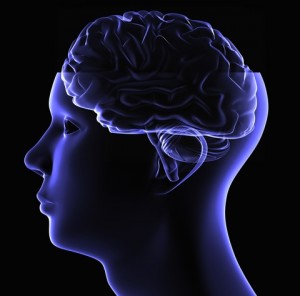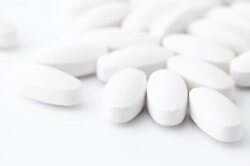Unlike alcohol withdrawal, cocaine detox usually does not put an addict’s life in danger. But the anxiety, agitation, restlessness and depression of cocaine withdrawal may be so severe that they drive you to relapse, in spite of your best intentions. On top of these psychological symptoms, intense cravings for the drug cause many recovering addicts to go back to their former habits. While it’s possible to detox from cocaine on your own, you can increase your chances of a successful recovery significantly if you recover with medical supervision in a safe, comfortable and supportive environment.
What makes residential cocaine detox more effective than self-detoxification? An extended stay at an inpatient treatment center can provide these valuable benefits:
Benefits of Cocaine Detox
- A secure setting that temporarily separates you from the triggers and temptations of your daily life
- Intensive individual counseling to help you understand the reasons behind your substance abuse
- Group therapy with other addicts who can provide hope and share coping strategies that can help you stay clean
- Medication, if necessary, to help you curb the craving for cocaine
- A physical and psychological health evaluation to determine whether you need treatment for co-existing medical or mental health conditions
Although detoxing at home may seem to be a more affordable option than enrolling in a rehab program, you may be depriving yourself of the opportunity to make profound changes in your life if you attempt detox without any help. Admitting the need for help is one of the biggest challenges for many cocaine users, who love the energy and the sense of power that this stimulant provides. If you’ve reached the point that you know your life can’t continue as it is, it’s time to reach out to an addiction professional to talk about cocaine detox.
How Cocaine Affects the Brain
 Cocaine is a central nervous system stimulant derived from the plant Erythroxylon coca, which grows abundantly in South America. Originally used in Western culture as a local anesthetic, cocaine has evolved into one of the most widely abused drugs in the world. According to the 2011 National Survey on Drug Use and Health, 637,000 Americans over the age of 11 reported using cocaine for the first time in the past 12 months: an average of about 1,700 new users per day. The euphoria, energy and surge of confidence produced by cocaine make this drug extremely popular as well as highly addictive.
Cocaine is a central nervous system stimulant derived from the plant Erythroxylon coca, which grows abundantly in South America. Originally used in Western culture as a local anesthetic, cocaine has evolved into one of the most widely abused drugs in the world. According to the 2011 National Survey on Drug Use and Health, 637,000 Americans over the age of 11 reported using cocaine for the first time in the past 12 months: an average of about 1,700 new users per day. The euphoria, energy and surge of confidence produced by cocaine make this drug extremely popular as well as highly addictive.
Cocaine is a central nervous system stimulant that produces its effects by altering the way the brain processes dopamine, a neurotransmitter that’s vital to the brain’s natural reward system. When you engage in physically or psychologically gratifying activities, like eating a piece of imported chocolate or winning a card game, your brain releases dopamine, a chemical messenger that transmits feelings of contentment, satisfaction and well-being. These feelings encourage you to repeat the activity.
Under normal circumstances, the brain recycles dopamine to prevent overload. Cocaine blocks the brain’s natural uptake of dopamine, allowing this neurotransmitter to flood your system. Instead of subsiding gradually, the good feelings generated by dopamine keep going. Because dopamine is also involved with movement, coordination and emotional responses, cocaine can also affect these aspects of your behavior, notes the University of Texas at Austin.
When Does Recreational Use Become Addiction?
In the early stages of cocaine use, when you’re taking the drug now and then at parties or with friends, you don’t need much cocaine to feel that surge of excitement, strength and happiness. But with repeated use, the brain can become desensitized to the effects of excess dopamine. After a few weeks or months, you may notice that you need more cocaine to achieve the same kind of high that you got when you first started using the drug.
You may also start to experience some of the negative side effects of cocaine use, such as:
If your cocaine use has developed into an addiction, you’ll continue to seek and use the drug compulsively in spite of these frightening complications. You may even keep using snorting, smoking or injecting coke in spite of legal problems, financial difficulties or exposure to diseases caused by IV drug use. If you’ve made the effort to quit more than once but you keep relapsing because of unbearable cravings and withdrawal symptoms, you may be chemically dependent. Cocaine detox is the first stage in helping you recover your health, your sanity and your life.
Cleansing Your Body of Cocaine
The primary goals of cocaine detoxification are to evaluate your health status at the time of admission, to get you into a medically stable condition and to pave the way for you to continue the rehab process. Cocaine withdrawal may not be dangerous from a medical standpoint, but it can place you in jeopardy of a psychological breakdown or a serious relapse.
During the withdrawal stage, you may experience:
- Intensified cocaine cravings
- Irritability and agitation
- Depression
- Unfocused thoughts
- Physical and mental exhaustion
- Inability to feel pleasure
- Muscle pain
- Tremors
- Chills
Being surrounded by compassionate, experienced professionals during detox can make all the difference in the world in the way you respond to withdrawal symptoms. Psychological support, pharmaceutical support and the moral support of other addicts are available in a structured rehab setting.
Medication for Cocaine Rehabilitation
 As the toxic chemicals clear your body, you’ll be assessed and monitored by professionals who can respond to changes in your mental or physical condition. You may also be prescribed medication that helps you deal with depression, anxiety, muscle spasms, sleep problems, agitation or cravings. The U.S. Food and Drug Administration (FDA) has not yet approved any drug specifically for cocaine addiction. However, pharmaceutical testing is underway to determine whether certain drugs can reduce the cravings that cause so many addicts to backslide.
As the toxic chemicals clear your body, you’ll be assessed and monitored by professionals who can respond to changes in your mental or physical condition. You may also be prescribed medication that helps you deal with depression, anxiety, muscle spasms, sleep problems, agitation or cravings. The U.S. Food and Drug Administration (FDA) has not yet approved any drug specifically for cocaine addiction. However, pharmaceutical testing is underway to determine whether certain drugs can reduce the cravings that cause so many addicts to backslide.
According to ClinicalTrials.gov, the drugs modanafil and naltrexone have been studied to determine whether they might be effective, either alone or in combination, at preventing cocaine relapse. Naltrexone has been used for the treatment of alcohol and opiate cravings and may also help block the pleasurable responses caused by cocaine. Modanafil has been used to treat sleep disorders and may also help promote abstinence in recovering cocaine users, according to Current Drug Abuse Review. When you recover in a medically supervised setting, you can take advantage of the latest therapies available for treating cocaine addiction.
Relapse Prevention Strategies
After cocaine detox, rehabilitation helps you modify your behaviors so that you can cope with the stresses and emotions of your daily life. Whether you used cocaine in response to intense emotions, depression, mood swings, work-related stress, social pressures or a combination of the above, identifying these triggers is a vital part of rehab. Once you’ve identified the triggers for your cocaine use, you can work with counselors and self-help groups to find ways to handle them without jeopardizing your sobriety.
As part of a relapse prevention program, you’ll learn how to respond to high-risk feelings or situations.
Effective coping strategies include:
- Practicing self-care, including following a balanced diet and getting enough sleep
- Consciously changing the thought patterns that lead you to destructive behavior
- Pursuing satisfying activities that promote physical and emotional health
- Identifying support groups in your community, such as Cocaine Anonymous, and attending meetings on a regular basis
Cocaine detox won’t automatically make you clean for the rest of your life. In order to maintain the benefits of detoxification and achieve long-term recovery, you need the support of qualified professionals. Talk with us about how you can benefit from a detox and rehab plan that’s customized for your individual needs.


